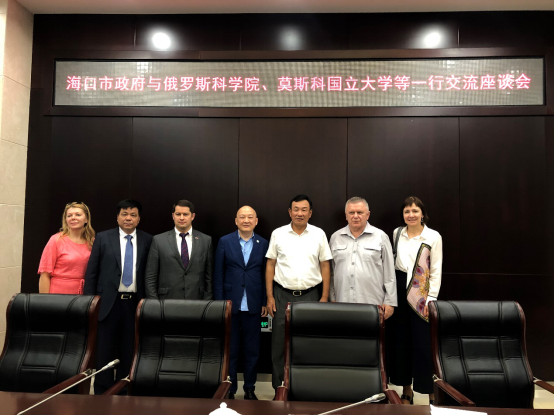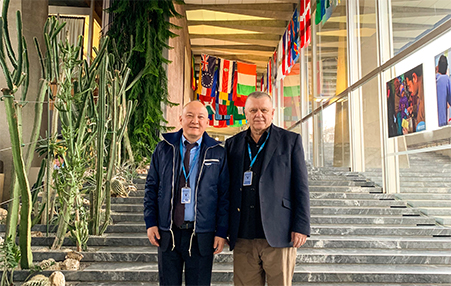 Welcome to international Exchange Committee China of non public medical institutions
Welcome to international Exchange Committee China of non public medical institutions
 Welcome to international Exchange Committee China of non public medical institutions
Welcome to international Exchange Committee China of non public medical institutions
In November, IMECC has achieved outstanding results in international medical exchange and cooperation. The medical visit to Australia was just concluded. Then non-government international medical exchange and cooperation between China and Russia started in Haikou, a beautiful and One Belt One Road strategic city!

IMECC, together with Viktor Fersht, Director of the International Department of Kremlin Presidential Special Projects Foundation and Director and Professor of the International Department of the Biomedical Center of the Moscow State University, Valeriya Gribova, Deputy Director of the Institute of Automation and Control Processes of the Russian Academy of Sciences and President of the Association of Artificial Intelligence, Aleksandr Aleksandrov, Director-General of the Russian Federation Technology Innovation Center (Project Promotion Center of the Russian Academy of Sciences), Dmitry Edelev, Director of the Biomedical Center of the Moscow State University, Natalia Mayorova, Deputy Director of the Biomedical Center of the Moscow State University, as well as other members of the Russian delegation held business talks in Haikou with respect to mutual cooperation in aspects of aging medical care, research and development of traditional Chinese medicine, healthcare education and training, talent exchange and cooperation, and joint establishment of medical institutions, and reached a number of cooperation consensus.
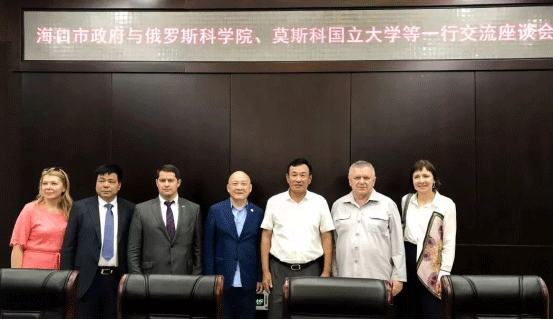
Exchange symposium held between Haikou municipal government and Russian Academy of Sciences, Moscow State University, and others
Russia advances the development of traditional Chinese medicine and artificial intelligence
As a spokesman for the Russian delegation, Viktor Fersht said that Russia had been committed to research in the fields of artificial intelligence and biomedicine. Scientific researchers from the Russian Academy of Sciences, the Moscow State University under the jurisdiction of President Putin and the St. Petersburg University would be able to participate in supporting future IMECC projects in Haikou. At present, the Moscow State University and the Russian Academy of Sciences are working on biomedicine and traditional Chinese medicine research projects, combining artificial intelligence technology for treatment and diagnosis and applying it in the field of traditional Chinese medicine. Hainan Province itself has very rich plant resources for traditional Chinese medicine, which can be perfectly combined with Russian artificial intelligence to develop new achievements using scientific and technological means and achieve better development. In the future, it is expected to work with Lingang, Haikou government, and IMECC to jointly carry out project cooperation in Haikou and the entire Asia-Pacific region to achieve a win-win situation at a new stage of Haikou's scientific and technological development.
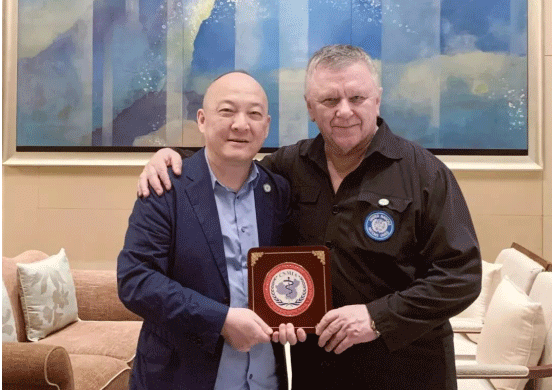
Cheng Wenhao (left), Executive Deputy Director and Secretary-General of IMECC and Viktor Fersht (right), Director of the International Department of Kremlin Presidential Special Projects Foundation and Director and Professor of the International Department of the Biomedical Center of the Moscow State University
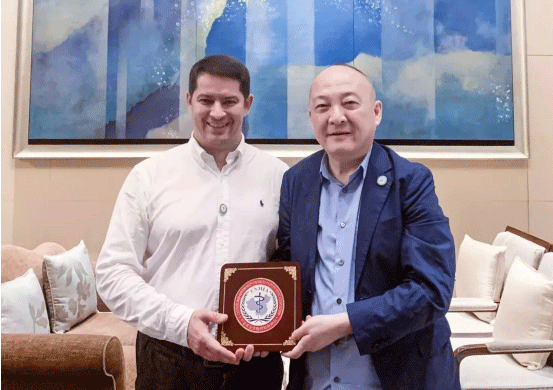
Dmitry Edelev, Director of the Biomedical Center of the Moscow State University, and Cheng Wenhao (right), Executive Deputy Director and Secretary-General of IMECC
The possibility of cooperation between China’s socially-run medical institutions and Russian medical institutions
Cheng Wenhao, Executive Deputy Director and Secretary-General of IMECC, said at the symposium with the Russian delegation that the Chinese Non-governmental Medical Institutions Association is a national first-level association that serves to deepen the reform of China's medical and health system and promotes the innovative development of non-government medical institutions. IMECC, as a specialized working organization engaged in international medical exchange and cooperation of the Association, is carrying out international medical exchange, scientific research, and strategic cooperation around the world,including by establishing offices in various locations, and cooperating with top international medical institutions such as Mayo and Cleveland to jointly build an international branch with Chinese features and cooperating with many world-renowned universities (including: jointly establishing schools and training centers, etc.); China's medical development is fast, from 520,000 socially-run medical institutions in 2018 to nearly 600,000 in 2019 as estimated; The socially-run medical institutions hit a record of total quantity of Chinese medical institutions at the speed of opening 7-8 new hospitals and more than 100 clinics per day; It can be seen that there will be unlimited market value and development potential in the future in the field of Chinese non-public medical institutions.
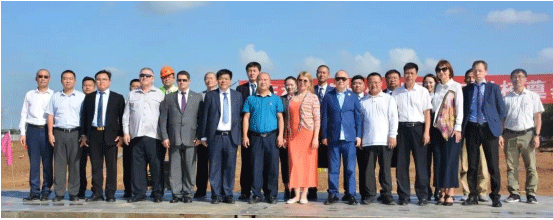
At present, Chinese non-government medical institutions, as partners of Shanghai Lingang, are participating in the development plan of the medical industry in Shanghai’s Lingang New Area; It is expected that the Russian delegation can participate in the international development of the market of China's 520,000 socially-run medical institutions, and the two sides will complement each other to achieve a global consensus on medical and health care.
IMECC reaches strategic cooperation agreements with Russian delegation
At this meeting, the Russian side expressed its strong willingness to cooperate with the Chinese Non-governmental Medical Institutions Association and quickly reached and signed a number of strategic cooperation agreements with IMECC.
Highlights of the Russian delegation-IMECC cooperation:
1. Cooperation in aging medical care:
Under the framework of the ten-year aging development plan initiated by the World Health Organization, both sides jointly promote cooperation in scientific research, resources, projects, and talents on aging medical care between China, Russia, and the Asia-Pacific region.
2. Cooperation in Chinese traditional medicine development:
Both sides jointly promote the cooperation between China and foreign countries in the aspect of Chinese traditional medicine and plan to jointly establish the Chinese traditional medicine research base in Shanghai Lingang Group's Science and Technology Park in Haikou.
3. Cooperation in education in the field of healthcare:
Both sides jointly promote China's international healthcare education, connect with world renowned healthcare experts and use advanced Internet technology for distance education.
4. Cooperation in the field of scientific and technological innovation:
Both sides establish an international medical science innovation project center to achieve technology transformation, accelerated project incubation, and technology transfer, etc.
5. Cooperation in talent exchange and cooperation:
Both sides jointly promote exchanges between China and international healthcare professionals.
China has witnessed the medical exchange with the world at an unprecedented rate of development, and China's medical market is also talking to the world with an unprecedented open attitude. IMECC will be an important force to continuously drive the international development of Chinese socially-run medical institutions, and a pioneer in achieving the dream of Healthy China 2030. IMECC makes continuous efforts and never stops in international medical exchange and cooperation!
Further reading
Swipe up for reading and browsing
Russian Academy of Sciences
Founded in St. Petersburg in 1724, the Russian Academy of Sciences has a history of more than 270 years. It is a world-renowned, large public and non-profit scientific organization that leads the nation’s basic research in natural sciences and social sciences. Its complete system and strong scientific team make it one of the important research institutions in the world. It is the highest academic institution in the Russian Federation. Its main work is to strengthen basic research in the field of humanities and science and technology, conduct long-term research on industrial development, and explore opportunities for technical progress, and maximize technical practice and application. Currently, the Russian Academy of Sciences is actively promoting the application and development of artificial intelligence and information technology in the medical field.
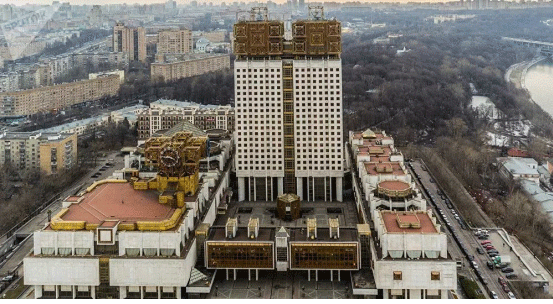
Swipe up for reading and browsing
Moscow University
The Lomonosov Moscow State University, or “Moscow University" for short, is the largest and oldest comprehensive university in the Russian Federation, the All-Russian Academic Center, and one of the top European and world-renowned universities. The school was initiated and founded by Russian educator Lomonosov in 1755. It has a long history and excellent academic tradition. The Center for Applied Medicine and Food Safety of the Lomonosov Moscow State University is an educational and research institution for biomedicine, food safety, applied medicine and other innovative technologies. Renowned for its high academic standards of education, it has a special status in the Russian Federation and is under the jurisdiction of Russian President Putin. Strong in the field of medicine, it has set up the Biomedical Center separately to promote the development of biomedicine.
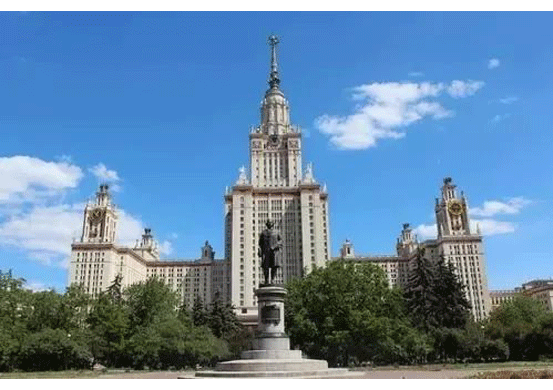
Author: Yuan Zidan
Editor: Maple
Proofreader: P.T,Mily
Contact phone of the International Medical Exchange & Cooperation Committee of the Chinese Non-government Medical Institutions Association: 400-002-1000



